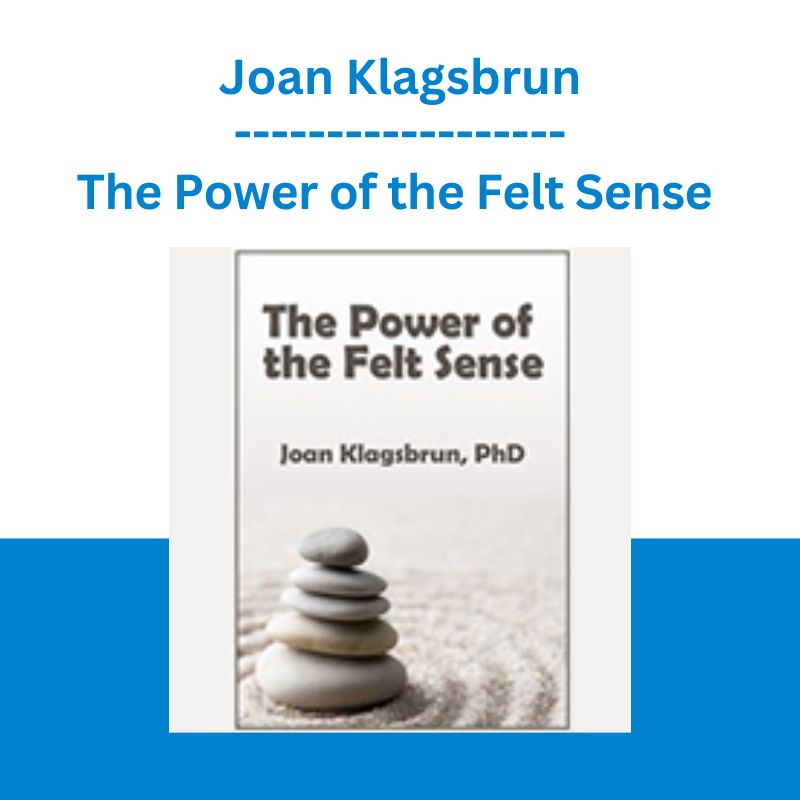*** Proof of Product ***
Exploring the Essential Features of “The Power of the Felt Sense By Joan Klagsbrun – PESI”
Do you have clients who seem to live in their heads and have a hard time sensing inside themselves?
Focusing is a process that helps clients speak from their feelings, rather than about them. It teaches clients to listen to their body’s signals, bypassing defenses and accessing the implicit body wisdom of their “felt sense.”
Focusing can be easily integrated into sessions or used as an everyday life practice that gently brings emotional issues into fuller awareness.
Speaker
Joan Klagsbrun, PhD, is a psychologist who has taught Focusing to the public and mental health professionals for over three decades and across seven continents. She’s an adjunct professor at Lesley University and has published articles, book chapters, and other Focusing resources.
Speaker Disclosures:
Financial: Joan Klagsbrun is an adjunct professor at Lesley University. She has no relevant financial relationships with ineligible organizations.
Non-financial: Joan Klagsbrun has no relevant non-financial relationship to disclose.
Objectives
- Describe the benefits of integrating Focusing into psychotherapy to improve the understanding of feelings and emotions in clients.
- Develop an attitude of compassion when identifying feelings to improve client engagement with the therapeutic process.
- Explain the essential concepts of Focusing as it relates to clinical practice.
- Consider the value of clearing a space in order to foster mindfulness and identify issues that may benefit from Focusing.
- Outline the instructions for guiding clients in Focusing, and assess the effectiveness of Focusing as it relates to specific emotional problems to determine the most appropriate means of integration.
- Identify further resources for Focusing and describe the benefits of partner-based Focusing for therapists to reduce stress and improve therapist engagement with clients.
Outline
Research Studies That Support the Benefits of Focusing in Psychotherapy
- People who are natural focusers seem to have better outcomes from a year of psychotherapy
Focusing Enables Clients to Have Their Feelings and Not Be Their Feelings
- Example of a client who was able to consult her body felt sense and get the right distance from her feelings
- The importance of self compassion and self-acceptance and curiosity ie the Focusing Attitude
Description of Presence Language That is Practiced in Focusing-Oriented Therapy: Language Such as Something in Me, Part of Me, a Place in Me, etc.
- Experiential exercise demonstrating the benefits of this linguistic approach and its value in therapy
How Focusing Taps into the Right Hemisphere’s Knowing and Then Connects to Left Hemisphere’s Capacity for Labeling
- Describing the concept of the felt sense and felt shift
- An experience of the felt sense and the felt shift
The Use of the “Handle” (Word, Phrase, Image or Gesture) in Focusing
The ‘Philosophy of the Implicit’ that Gene Gendlin Coined and How That Philosophy is Translated into Psychotherapy
- Case study of focusing informed psychotherapy with a man with MS
- Practice of Focusing—participants will experience the Focusing protocol
Clearing a Space—The Optional First Step of Focusing and a Stress Reduction Method That Can be Used in Therapy by Itself
- Origins and research on this method
- Case study demonstrating the use of Clearing a Space with a client
- Participants practice this optional first step of Focusing
- Description of research study of Clearing a space with women with breast cancer
Wrap Up
- Short role play between therapist and client
- Resources (websites) for more information about this mindful approach
- Applications for the care of the therapist as well as for clients
Target Audience
- Psychologists
- Physicians
- Addiction Counselors
- Counselors
- Social Workers
- Marriage & Family Therapists
- Nurses
- Other Behavioral Health Professionals
Please see the full list of alternative group-buy courses available here: https://lunacourse.com/shop/










 Simpler Trading - Bruce Marshall - The Options Defense Course
Simpler Trading - Bruce Marshall - The Options Defense Course